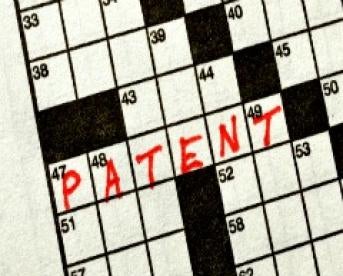Addressing the application of the “machine-or-transformation test” in the context of a covered business method (CBM) patent review, the Patent Trial and Appeal Board (PTAB or Board) concluded that all of the challenged claims are likely unpatentable under 35 USC § 101 and agreed to institute the CBM patent review. Brookshire Grocery Company v. NexusCard, Case No. 2015-00183 (PTAB, Mar. 28, 2016) (Chung, APJ) (Fitzpatrick, APJ, concurring).
Kroger and Brookshire Grocery (collectively, the petitioner) requested a CBM review of a patent directed to a method of processing merchandise discounts based on a computerized membership system. The only ground of unpatentability asserted by the petitioner was lack of patent-eligible subject matter under 35 USC § 101. The petitioner argued that the challenged claims were directed to a “membership discount program,” which is “an abstract, mental process because the recited steps can be performed manually or using pen and paper by replacing computing components with manual and human equivalents.”
The patent owner responded that the challenged claims were not directed to a mere “membership discount program,” but rather to a discount program where “a consumer/person becomes a member and for becoming a member is entitled to, and in fact receives, a discount.” The Board was not persuaded, concluding that the challenged claims were directed to an abstract idea that was not meaningfully different from the ideas found to be abstract by the Supreme Court of the United States and the US Court of Appeals for the Federal Circuit. The Board also concluded that the challenged claims did not include an inventive concept sufficient to transform the claimed abstract idea into a patent-eligible application, because the claims only use conventional components that perform routine, conventional activity.
With regard to the machine-or-transformation test, the patent owner asserted that the challenged claims were tied to a particular machine because they included the use of a membership ID with memory storage means, communication means, a scanner and a printer, and that those elements were not general purpose computers. The patent owner also argued that case law supported its argument that the claimed “communication means” should be construed to cover a cash register and a credit card, and that those are “special purpose” computers. The Board again disagreed, noting that “the cited cases have nothing to do with the machine-or-transformation test in this case because the ‘communication means’ at issue in this case is not a computer programmed to perform any specific algorithm disclosed in the specification.” Accordingly, the Board concluded that the challenged claims did not satisfy the transformation test.
In his concurring opinion, APJ Fitzpatrick joined all aspects of the decision to grant the CBM petition except for the analysis of the machine-or-transformation test. He cited to Bilski for the proposition that
The machine-or-transformation test may well provide a sufficient basis for evaluating processes similar to those in the Industrial Age—for example, inventions grounded in a physical or other tangible form. But there are reasons to doubt whether the test should be the sole criterion for determining the patentability of inventions in the Information Age. As numerousamicus briefs argue, the machine-or-transformation test would create uncertainty as to the patentability of software, advanced diagnostic medicine techniques, and inventions based on linear programming, data compression, and the manipulation of digital signals.
Fitzpatrick observed that the test is of little, if any, value in determining the patent eligibility of the claims in the present case. He also concluded that in light of application of the legal framework set out in the Alice/Mayo decisions, the machine-or-transformation test is wholly unnecessary.



 i
i


